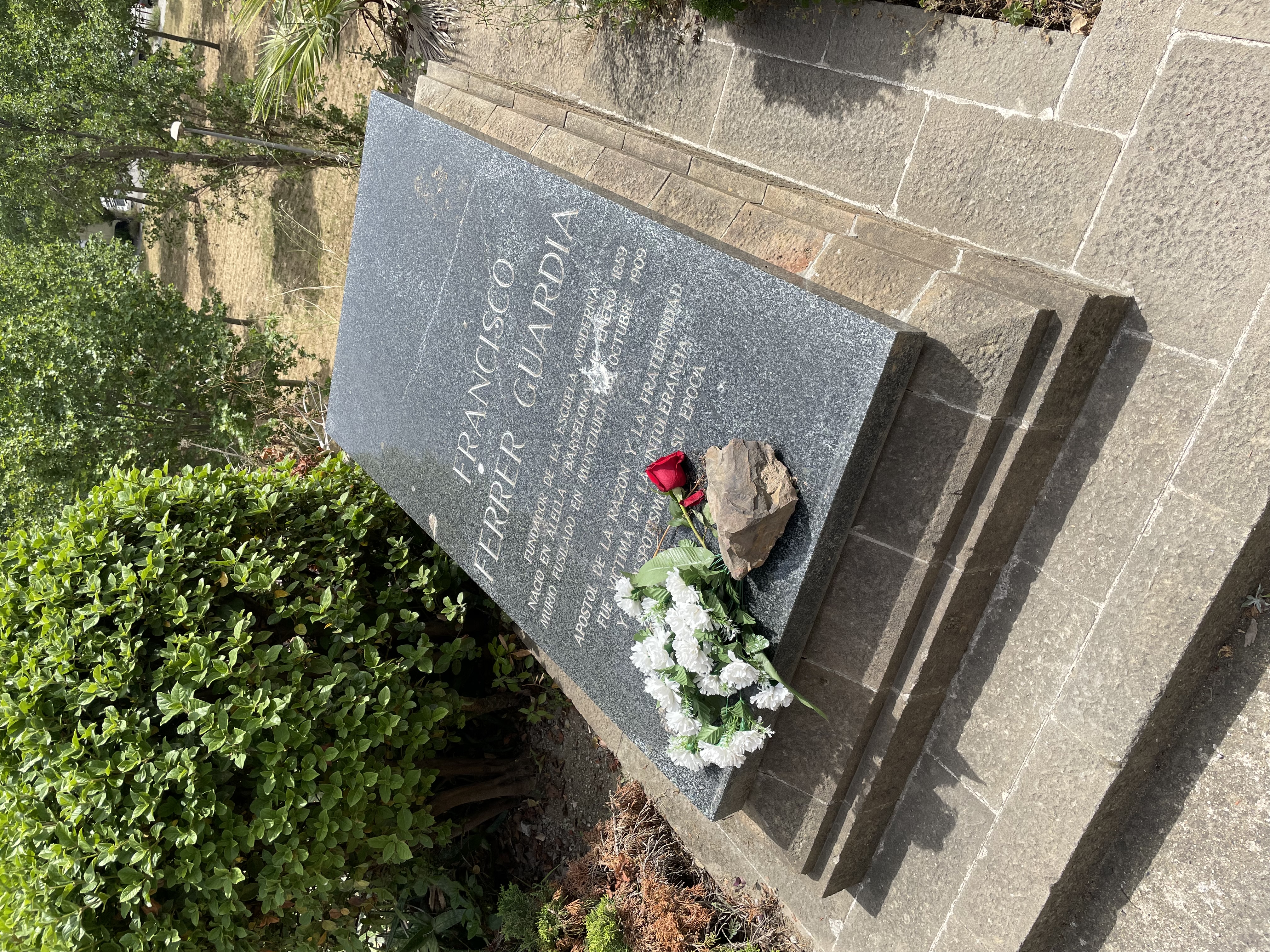|
Teresa Torrelles
Teresa Torrelles Espina (27 May 1908 – 18 May 1991) was a Catalan trade unionist, anarcha-feminist activist and hospital administrator. Having worked in the textile industry from an early age, Torrelles joined the anarcho-syndicalist movement at the age of 16. She moved to Terrassa, where she organised a local women's group, which established a libertarian library and secular school. She successfully pushed for the adoption of working women's demands, such as equal pay for equal work and maternity leave, by the local branch of the Confederación Nacional del Trabajo (CNT). She also helped establish the Mujeres Libres, the women's organisation of the CNT. During the Spanish Civil War, she worked as a hospital administrator, overseeing the construction of a clinic with a functioning maternity ward in Terrassa. After the war, she fled to France, then Argentina and Venezuela, before moving back to France, where she died in 1991. Biography Early life and activism Teresa Torrel ... [...More Info...] [...Related Items...] OR: [Wikipedia] [Google] [Baidu] |
Brackets
A bracket is either of two tall fore- or back-facing punctuation marks commonly used to isolate a segment of text or data from its surroundings. They come in four main pairs of shapes, as given in the box to the right, which also gives their names, that vary between British English, British and American English. "Brackets", without further qualification, are in British English the ... marks and in American English the ... marks. Other symbols are repurposed as brackets in specialist contexts, such as International Phonetic Alphabet#Brackets and transcription delimiters, those used by linguists. Brackets are typically deployed in symmetric pairs, and an individual bracket may be identified as a "left" or "right" bracket or, alternatively, an "opening bracket" or "closing bracket", respectively, depending on the Writing system#Directionality, directionality of the context. In casual writing and in technical fields such as computing or linguistic analysis of grammar, brackets ne ... [...More Info...] [...Related Items...] OR: [Wikipedia] [Google] [Baidu] |
Anarcho-syndicalism
Anarcho-syndicalism is an anarchism, anarchist organisational model that centres trade unions as a vehicle for class conflict. Drawing from the theory of libertarian socialism and the practice of syndicalism, anarcho-syndicalism sees trade unions as both a means to achieve immediate improvements to working conditions and to build towards a social revolution in the form of a general strike, with the ultimate aim of abolishing the state (polity), state and capitalism. Anarcho-syndicalists consider trade unions to be the Prefigurative politics, prefiguration of a Post-capitalism, post-capitalist society and seek to use them in order to establish workers' control of Production (economics), production and Distribution (economics), distribution. An anti-politics, anti-political ideology, anarcho-syndicalism rejects political party, political parties and participation in parliamentary system, parliamentary politics, considering them to be a corrupting influence on the labour movement. ... [...More Info...] [...Related Items...] OR: [Wikipedia] [Google] [Baidu] |
Anarchism In Spain
Anarchism in Spain has historically gained some support and influence, especially before Francisco Franco's victory in the Spanish Civil War of 1936–1939, when it played an active political role and is considered the end of the golden age of classical anarchism. There were several variants of anarchism in Spain, namely expropriative anarchism in the period leading up to the conflict, the peasant anarchism in the countryside of Andalusia; urban anarcho-syndicalism in Catalonia, particularly its capital Barcelona; and what is sometimes called "pure" anarchism in other cities such as Zaragoza. However, these were complementary trajectories and had many ideological similarities. Early on, the success of the anarchist movement was sporadic. Anarchists would organize a strike and ranks would swell. Usually, repression by police reduced the numbers again, but at the same time further radicalized many strikers. This cycle helped lead to an era of mutual violence at the beginning of ... [...More Info...] [...Related Items...] OR: [Wikipedia] [Google] [Baidu] |
Francesc Ferrer
Francesc Ferrer i Guàrdia (; January 14, 1859 – October 13, 1909), widely known as Francisco Ferrer (), was a Spanish radical freethinker, anarchist, and educationist behind a network of secular, private, libertarian schools in and around Barcelona. His execution, following a revolt in Barcelona, propelled Ferrer into martyrdom and grew an international movement of radicals and libertarians, who established schools in his model and promoted his schooling approach. Ferrer was raised on a farm near Barcelona, where he developed republican and anti-clerical convictions. As a train conductor, he transmitted messages for the republican leader Manuel Ruiz Zorrilla, exiled in France. Following a failed republican uprising in 1885, Ferrer, too, moved to Paris with his family, where they stayed for 16 years. Ferrer began to explore anarchism and education. At the turn of the century, Ferrer had resolved to open a libertarian school modeled on Paul Robin's Prévost orphanage scho ... [...More Info...] [...Related Items...] OR: [Wikipedia] [Google] [Baidu] |

